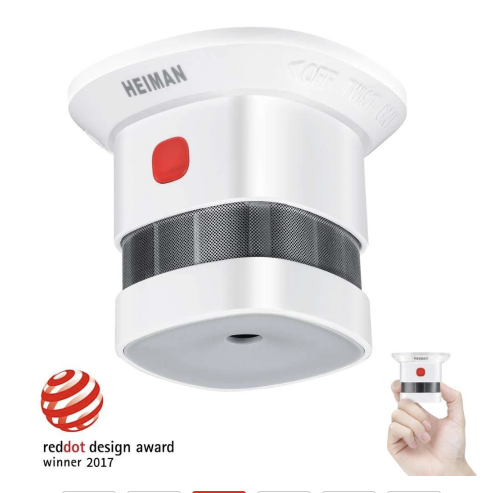I think AC/DC refers to the bridge detector that interfaces between their wireless interconnected detectors and a hardwired system. I have one of these when I had the idea to put a detector in the garage. Range was weak, so I had to put several wireless detectors in between. Plus, talk about spiders in the garage, lol. A heat detector would be best I guess, or in my opinion, in this product line, an ionization, but it's not offered.
It also goes to my point of how great it would be to easily track down the false alarms. Of course, it'd be nice not to get any false alarms. But, the more devices you have, the nicer the ability to track it down would be.
Just yesterday, our phones weren't working. We have a crap load of wired phones. It took a while just to figure out what was the culprit. It was an alarm-related jack. The more devices, the harder to track down.
I put in one detector that I put in downstairs, by the kitchen, when I installed the security system years ago. It's never gone off. Who knows if it works, lol. Maybe I'll actually try to test it this week, but the monitoring people have to get involved. It does seem to be built more substantially than the First Alert products, and uses a magnet to reset. I have a magnet on a stick-maybe I tested it once.
I don't get the security monitoring people involved with the hardwired system. Maybe I should. I'll definitely have to clean those puppies more regularly then, lol. I plan on installing the BRK relay later today to tie into Hubitat, but I don't think I'd also be able to tie into the security panel as well-maybe though, since the Ecolink contact sensor uses dry contacts as well as the panel. So, in addition to turning on lights, locking out leak detection rules, the security monitoring people could be called.
Next thing you know when we're out of town, the fire department will be breaking down my new driveway gate and smashing the front door in on a spider alarm. I laugh, but...
I have Envisalink. Maybe that could be used to send the alarm to the monitoring people. Then, if the alarm was transitory, as in a spider walking across the sensor, a rule could be made to only call if the alarm lasted a minute, or whatever.
I hear what you guys say about Nest. It sounds great, but replacing everything in the house would cost $, plus I hate throwing any money Google's way, if I can avoid it.
Sorry for the rambling.


